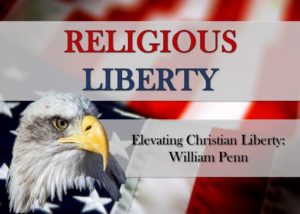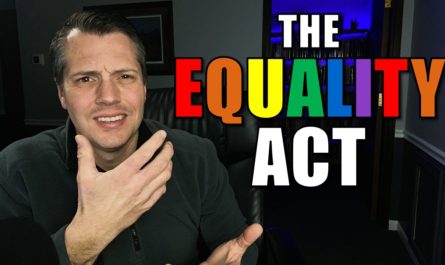 Roger Williams, the indomitable free spirit who laid the foundation of true religious liberty in America, found a kindred spirit in his friend William Penn. Penn, who founded the colony of Pennsylvania (which King Charles II named after Penn’s father, Sir William Penn), shared Roger’s view that religious liberty should extend to more than just those who subscribed to the specific religious stance of government officials.
Roger Williams, the indomitable free spirit who laid the foundation of true religious liberty in America, found a kindred spirit in his friend William Penn. Penn, who founded the colony of Pennsylvania (which King Charles II named after Penn’s father, Sir William Penn), shared Roger’s view that religious liberty should extend to more than just those who subscribed to the specific religious stance of government officials.
While Penn’s original purpose for establishing his colony was to provide a safe haven for Quakers, who were experiencing persecution in the New World, he extended religious freedom to Christians of every stripe. His Charter of Privileges declared that
no person or persons, inhabiting this province or territories, who shall confess and acknowledge one almighty God, the Creator, Upholder and Ruler of the world; and profess him or themselves obliged to live quietly under the civil government, shall be in any case molested or prejudiced, in his or their person or estate, because of his or their conscientious persuasion or practice, not be compelled to frequent or maintain any religious worship, place or ministry contrary to his or their mind, or to do or super any act or thing, contrary to their religious persuasion.[i]
A careful reading of this section of Penn’s Charter reveals two very interesting points. First, Penn ensured that no citizens could be coerced to take part in religious activities that they rejected. Second, he granted this freedom to a select group—those who “confess and acknowledge one almighty God.” In other words, as long as those who settled Pennsylvania confessed a belief in God, they could worship Him however they pleased.
William Penn could not have foreseen the mutilation of historical facts by our contemporaries who deny the Christian influence over America and attempt to extricate God from government. However, it almost seems as he did anticipate it as he continued in his charter to describe the qualifications for government officials. He declared that “all persons who also profess to believe in Jesus Christ, the Savior of the world, shall be capable (notwithstanding their other persuasions and practices in point of conscience and religion) to serve this government in any capacity, both legislatively and executively.”[ii]
While Penn’s view of liberty falls short of what we might call true religious liberty, he provides proof that Christianity serves as a large part of the bedrock of our American society. Even William Penn, the famous champion of religious liberty, refused to extricate all religious influence from government. Those today who attempt to rid government of any vestige of Christianity would do well to reacquaint themselves with the facts of history.
Next article: Religion and Morality: the Politics of George Washington
Previous article: True Liberty: The Indomitable Roger Williams
See the other articles about religious liberty
[i] William Penn, “Charter of Privileges Granted by William Penn, Esq. to the Inhabitants of Pennsylvania and Territories” (Yale Law School, October 28, 1701), accessed May 26, 2016, http://avalon.law.yale.edu/18th_century/pa07.asp.
[ii] Ibid.



